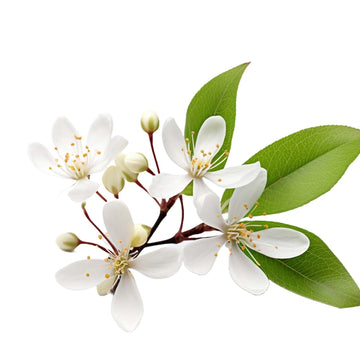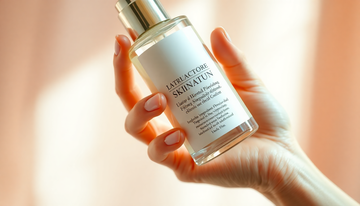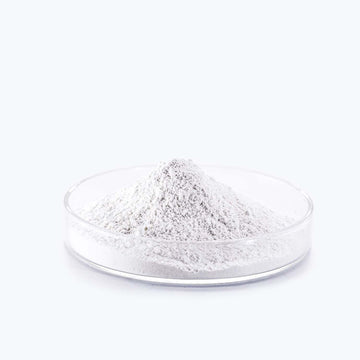Leptospermum Scoparium, commonly known as Manuka, is a native plant of New Zealand that has transcended its traditional uses to become a star in the world of skincare. In this comprehensive guide, we delve into the multifaceted properties of Leptospermum Scoparium, exploring its historical significance, applications in skincare, and its role in acne treatment.
Manuka, a shrub with small aromatic leaves, has been revered by indigenous communities for its medicinal properties. In recent times, its presence in skincare products has surged due to its unique composition and therapeutic potential.As consumers increasingly prioritize natural ingredients, Leptospermum Scoparium has gained recognition for its versatility. Its popularity in skincare formulations can be attributed to its antimicrobial, anti-inflammatory, and antioxidant properties.
1.Composition and Properties
A. Unique Components of Leptospermum Scoparium
The essential oil derived from Manuka leaves contains potent compounds such as triketones and sesquiterpenes. These components contribute to its distinct aroma and therapeutic effects.
B. Antimicrobial and Anti-inflammatory Properties
One of the key reasons for the inclusion of Leptospermum Scoparium in skincare is its powerful antimicrobial properties. It acts against a spectrum of microorganisms, making it effective for various skin concerns. Additionally, its anti-inflammatory nature soothes irritated skin.
2. Traditional Uses of Leptospermum Scoparium
A. Historical Significance
Indigenous cultures, especially the Māori people of New Zealand, have a rich history of using Manuka for its healing properties. It was employed to address wounds, infections, and various skin conditions.
B. Indigenous Uses in Skincare
Traditional skincare practices often involved using Manuka leaves and extracts for their skin-conditioning benefits. The infusion of Manuka in oils or balms was a common remedy for promoting skin health.
3. Leptospermum Scoparium and Acne
A. Addressing Acne Concerns
The antimicrobial nature of Leptospermum Scoparium makes it a compelling choice for those dealing with acne. It penetrates the skin, targeting the bacteria responsible for breakouts and promoting a clearer complexion.
B. Comparative Analysis with Conventional Treatments
Unlike some conventional acne treatments that may cause dryness or irritation, Manuka oil offers a gentler yet potent alternative. It addresses acne without compromising the skin's natural balance.
4. Incorporating Leptospermum Scoparium into Skincare Routine
A. Suitable Products Featuring Leptospermum Scoparium
Skincare enthusiasts can find Manuka oil in various products, including cleansers, serums, and spot treatments. Choosing products with a higher concentration of pure Manuka oil ensures optimal results.
B. Application Tips for Optimal Results
To maximize the benefits, it's essential to follow product guidelines for application and dosage. Applying a small amount to affected areas or incorporating it into a daily skincare routine can yield positive outcomes.
5. Real-life Testimonials
A. Personal Experiences with Leptospermum Scoparium
Individuals who have incorporated Leptospermum Scoparium into their skincare routines often share positive experiences. These testimonials highlight improvements in acne-prone skin, showcasing the oil's efficacy in real-life scenarios.
B. Before-and-After Transformations
Visual representations of before-and-after transformations provide compelling evidence of Leptospermum Scoparium's impact on skin conditions. These images serve as a testament to its potential in achieving clearer, healthier skin.
6. Potential Side Effects
A. Allergic Reactions and Precautions
While adverse reactions to Manuka oil are rare, it's crucial to conduct a patch test, especially for individuals with sensitive skin. This precautionary measure helps identify any potential allergies before widespread use.
B. Patch Testing for Sensitive Skin
A patch test involves applying a small amount of diluted Manuka oil to a discreet area of the skin and monitoring for any adverse reactions. This step ensures a safe and positive experience with the oil.
7. Myths and Facts about Leptospermum Scoparium
A. Dispelling Common Misconceptions
As with many popular skincare ingredients, myths and misconceptions surround Leptospermum Scoparium. Clarifying these common misunderstandings helps users make informed decisions about its usage.
B. Clarifying Doubts about Usage
Addressing doubts about the application and effects of Leptospermum Scoparium fosters a better understanding of its role in skincare. Clear and accurate information empowers users to incorporate it confidently into their routines.
8. Choosing Quality Products
A. Identifying Authentic Leptospermum Scoparium Formulations
The market offers a plethora of skincare products claiming to contain Manuka oil. However, not all formulations are created equal. Discerning consumers should look for reputable brands and high concentrations of authentic Manuka oil.
B. Reading Product Labels and Certifications
Examining product labels for the percentage of Leptospermum Scoparium and relevant certifications ensures that consumers invest in quality formulations. Certifications from reputable organizations validate the authenticity of the oil.
9. Dermatologists' Perspective
A. Insights from Dermatological Experts
Dermatologists recognize the potential of Leptospermum Scoparium in skincare. Some professionals may recommend it as part of a comprehensive acne management plan, considering its natural and effective qualities.
B. Clinical Studies and Findings
Ongoing research and clinical studies continue to explore the dermatological benefits of Leptospermum Scoparium. Preliminary findings suggest its positive effects on various skin concerns, further supporting its use in professional settings.
10. Beyond Acne: Additional Benefits
A. Addressing Various Skin Concerns
Beyond its role in acne management, Leptospermum Scoparium exhibits versatility in addressing other skin concerns. Its soothing and rejuvenating properties make it suitable for conditions such as eczema and psoriasis.
B. Beyond Acne: Additional Benefits
Users may discover additional benefits beyond acne treatment. Leptospermum Scoparium's multifaceted nature contributes to overall skin health, promoting a radiant and balanced complexion.To know more click here.Frequently Asked Questions (FAQs)
1: Can Leptospermum Scoparium be applied directly to acne-prone skin?
2: How long does it take to see results when using Leptospermum Scoparium for acne?
3: Does Leptospermum Scoparium cause skin dryness like some acne treatments?
4: Can Leptospermum Scoparium replace prescribed acne medications?
5: Is Leptospermum Scoparium safe for sensitive skin?
6: Beyond acne, what other benefits does Leptospermum Scoparium offer for the skin?





